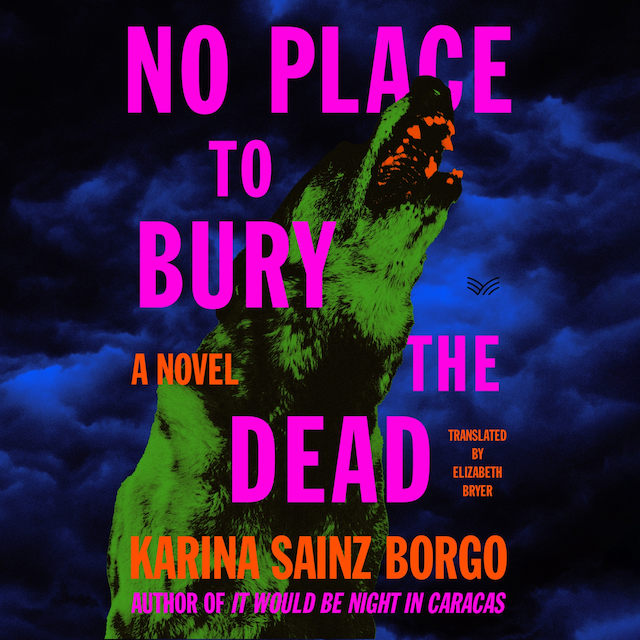
No Place to Bury the Dead
A Novel
Description of book
“[A] rich and lyrical tale of desperation and redemption . . . Throughout, Sainz Borgo applies stark poetry to the terrifying setting, where 'moans and cries attributed to ghosts sometimes masked executions and beatings.' It’s a stunner.” —Publishers Weekly (starred review)
“[A] deeply felt meditation on migration, mourning and the simultaneous entanglement and estrangement of the living and the dead” —Los Angeles Times
Winner of the 2023 Jan Michalski Prize, a searing novel of loss and resilience that illuminates the often-overlooked human dimension of the migrant crisis, re-imagining the border as a dreamlike purgatory bridging life and death.
In an unnamed Latin American country, a mysterious plague quickly spreads, erasing the memory of anyone infected. Angustias Romero flees with her family, but their flight is tragically cut short when she loses both her children. Consumed by grief, she finds herself within the hallucinatory expanse of Mezquite––a town corrupted by greed and populated by storytellers, refugees, and violent, predatory gangs.
Here, Angustias is finally able to lay her children to rest at the Third Country, a cemetery run by the larger-than-life Visitación Salazar and a refuge beyond suffering and fear. While Visitación remains defiant in her mission to care for the dead, the cemetery she oversees is the focal point of a bitter land dispute with Alcides Abundio, the most feared landowner of the border. Caught in this power struggle, Angustias and Visitación–friends and sometimes rivals– stand their ground on a frontier where the law is dictated by violence; a surreal territory whose very nature blurs the boundaries between life and death.
Exploring what we are capable of and how far we will go when we have nothing to lose, No Place to Bury the Dead confirms Karina Sainz Borgo’s importance amongst the voices of modern Latin American literature, merging thriller, western, and classic tragedy in an unforgettable and urgent novel that won the 2023 Jan Michalski Prize.
Translated from the Spanish by Elizabeth Bryer


